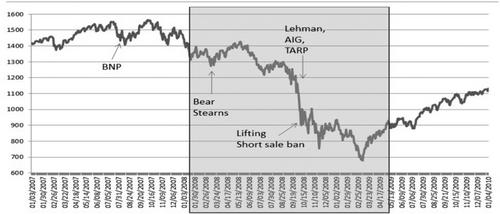The Voice of Risk: Wall Street CEOs' Voice Pitch and the 2008 Financial Crisis*
IF 1.5
4区 经济学
Q2 BUSINESS, FINANCE
引用次数: 0
Abstract
The pitch of a male voice is an honest signal of his threat potential coming from testosterone. Recognizing endogenous matches between firms and CEOs, we propose to use voice pitch of the CEO as a proxy for the unobservable risk-taking strategy of the firm. Using digitally analyzed male CEO voice pitch in 167 CNBC interviews during the 2008 global financial crisis, we find that deep-voiced Wall Street CEOs (i) managed riskier firms, (ii) received more equity-based compensation before the crisis and (iii) were more likely to be fired after the crisis, controlling for economic incentives, overconfidence, and narcissism.

风险之声:华尔街首席执行官的嗓音音调与 2008 年金融危机*
男性声音的高低是其威胁潜力的真实信号,来自睾丸激素。考虑到公司与首席执行官之间的内生匹配,我们建议使用首席执行官的音调作为公司不可观测的风险承担战略的替代物。通过对 2008 年全球金融危机期间 167 个 CNBC 访谈中男性首席执行官的声调进行数字分析,我们发现,在控制经济激励、过度自信和自恋的情况下,声音低沉的华尔街首席执行官(i)管理的公司风险更高,(ii)在危机前获得的股权报酬更多,(iii)在危机后被解雇的可能性更大。
本文章由计算机程序翻译,如有差异,请以英文原文为准。
求助全文
约1分钟内获得全文
求助全文

 求助内容:
求助内容: 应助结果提醒方式:
应助结果提醒方式:


